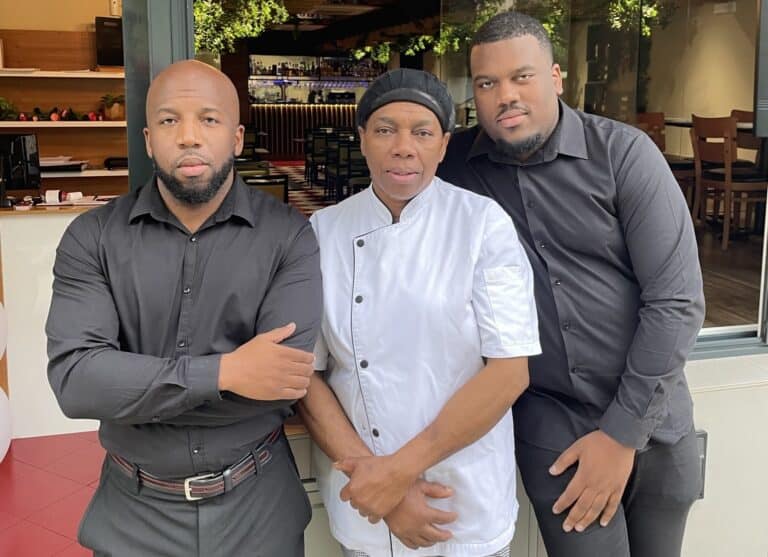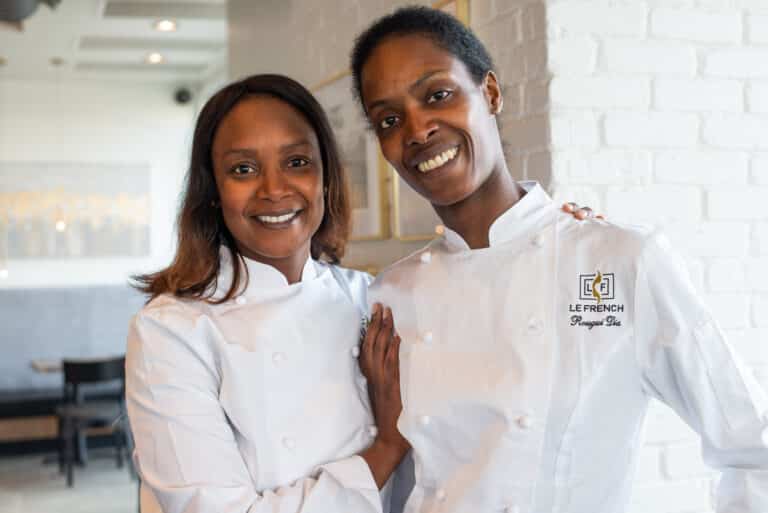Oklahoma seems like the perfect birthplace for mama-in-charge and nutrition justice advocate Tambra Raye Stevenson. Known for its rich Native American history and culture, it is also where Stevenson grew-up and began her journey for seeking knowledge and information using natural and native ingredients and techniques from the earth to nourish and heal the body.
A true researcher at heart, Stevenson always knew there was a cause and effect in what we do, especially in how we eat. The founder of NativSol Kitchen who is now based in Washington, D.C., develops cultural, faith-based and wellness programs around African foods and nutrition; a vision that came to her in 2006.
RELATED: Grace Hightower De Niro: Capturing the Spirit of Rwanda Through Coffee
RELATED: Charlita Varner: Making Holidays and Every Day Sweeter
“NativSol was really created actually from my visits to the Gulf port regions. It was a spiritual journey for me going there and still impacts me now,” says the mother of two who traced her Fulani lineage back to Niger and Nigeria. Stevenson spent time working for the government working with small businesses around the time when Hurricane Katrina hit which allowed her to work with Leah Chase and other businesses throughout the region.
Getting Back to One’s Roots
Her work today truly focuses on building healthy communities from the inside out and extends to being the founding member of the DC Mayor’s Office on African Affairs’ Health Education Planning Committee and serving on the Mission Committee for the American Heart Association and community leadership board for the American Diabetes Association.
Tapping into her African roots for health and healing was a natural progression in her career. Growing up with a stepfather who was from Ghana, Stevenson developed her curiosity early on around foods from the native soil of Africa and combined with her intense desire to focus on nutrition and travel, it was a recipe for success and sealed her tagline which is, “Come back home.”
When looking at the African diet vs. an American diet, think more alkaline vs. acidic. Healthier starches that are diverse color vs. your white starches like potatoes. Foods high in fiber, a variety of African spices with medicinal properties, spicy vs. sweet and spicy and one of the biggest differences is meat as a side dish and not the main course.
“Because of my research background, I am always compiling the review of studies around African people as it relates to food and those from the Diaspora and how it has impacted their health,” says Stevenson. One study, she shared, showed how the health of Africans who come to the U.S. deteriorates after five years due to adopting an American diet that is rich in foods that are processed.
“I definitely think like a food hunter,” shares Stevenson who didn’t want to be the typical nutritionist people think of; a person who is skinny and tells you to eat this and that based on textbook teachings. Instead, she wanted to teach on her own terms in a way that people can relate and at the same time learn about heritage foods, themselves, their culture and be healed.
A Taste of Africa
Last year, Stevenson was one of nine individuals chosen by National Geographic for its Travelers of the Year program which celebrates people who travel with passion and purpose. This honor is added to the growing list of accolades that she has received based on following her passion for tracing the pathways to foods that are a part of our heritage.
This month on February 21, she’ll join the Accokeek Foundation for a lively discussion with panelists and cooking demonstrations around soul food justice. The event will take place from 4-6:30 pm at Joe’s Movement Emporium located Bunker Hill Road in Mt. Rainier, Maryland. Visit the foundation’s site for more information and to purchase tickets which are $5.
Check Stevenson and NativeSol Kitchen to learn more. You can also follow her on Twitter and Facebook and watch her videos on YouTube.
MORE FROM CUISINE NOIR
Chef Joe Randall: Back in Class with the Dean of Southern Cuisine
Soul Searching: Family Biopic Explores Black Community’s Intense Connection to Soul Food








